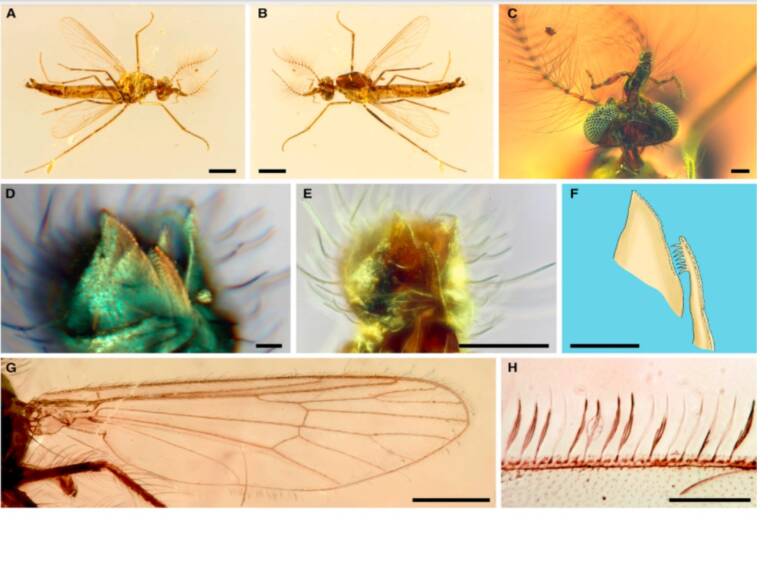The oldest fossil mosquitoes discovered in amber: they were male, but they sucked blood

The researchers discovered that the first mosquitoes found in the amber that were proven to have sucked blood were not female, but male. These are two fossil insects dated to the early Cretaceous period and preserved in Librarian amber. Today only female mosquitoes suck blood. The discovery, made possible thanks to an advanced Chinese microscope, was published in Cell Press Current Biology.
Dany Azar, lead author of the work and a researcher at the Nanjing Institute of Geology and Paleontology of the Chinese Academy of Sciences and at the Lebanese University, discovered samples of amber formed under a tropical forest in central Lebanon. The Early Cretaceous is a period that extends from 145 to 100 million years ago.
After not studying these specimens for more than a decade, Azar began examining the fossils last year, but a lack of reliable equipment prevented him from clearly identifying them, said Huang Diying, a researcher at the Nanjing Institute and author of the article. This is why Azar had to join the Chinese university.
According to the Chinese-language news site Science Times, during his time at the institute Azar used confocal and fluorescence laser microscopes to observe fossils. With this equipment, scientists could "see the fossils very clearly" and identify their characteristics, Huang said.
The male mosquitoes discovered had parts that closely resemble those of modern females – “piercing mouthparts” with sharp mandibles that allow the insect to pierce skin and suck blood.
Mosquitoes feed on fruit juice and nectar, and nowadays only female mosquitoes are hematophagous, meaning they feed on blood, supplementing their diet with blood to encourage egg growth. The mouthparts of male mosquitoes are much smaller and do not allow them to penetrate the skin. But the discovery of these fossils suggests that this was not always the case.
Previously, the oldest known mosquito had been dated to the Late Cretaceous, which began about 100 million years ago. But this discovery traced the insect's fossils back to a more distant period.
“Here we have one from the early Cretaceous, about 30 million years earlier,” André Nel, professor at the National Museum of Natural History in Paris and author of the work, told Cell Press.
This is the “earliest lineage and oldest presence of mosquitoes,” the paper reads. Molecular dating suggests the insect originated even earlier, during the Jurassic, but this fossil is currently the oldest identified member of the mosquito family.
The discovery “suggests that not only were the first female mosquitoes blood-sucking, but the males were blood-sucking as well, in some cases.”
“Such behavior would be surprising for a male mosquito,” given that males today feed on plant sap, nectar or honeydew, according to the paper.
Why have male mosquitoes lost the ability to suck blood? It seems possible that the evolution of flora has facilitated this evolution. In the High Cretaceous, few plants reproduced with flowers and fruits, limiting the ability of mosquitoes to feed on plants. Precisely during the Cretaceous, angiosperms, i.e. plants with flowers and fruits, spread widely and became prevalent. Perhaps this evolution caused male mosquitoes to lose their bad habit of sucking blood.

Thanks to our Telegram channel you can stay updated on the publication of new Economic Scenarios articles.
The article The oldest fossil mosquitoes discovered in amber: they were male, but they sucked blood comes from Economic Scenarios .
This is a machine translation of a post published on Scenari Economici at the URL https://scenarieconomici.it/scoperte-le-piu-antiche-zanzare-fossili-nellambra-erano-maschi-ma-succhiavano-sangue/ on Tue, 12 Dec 2023 21:10:33 +0000.
